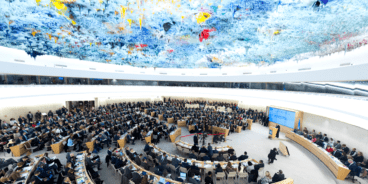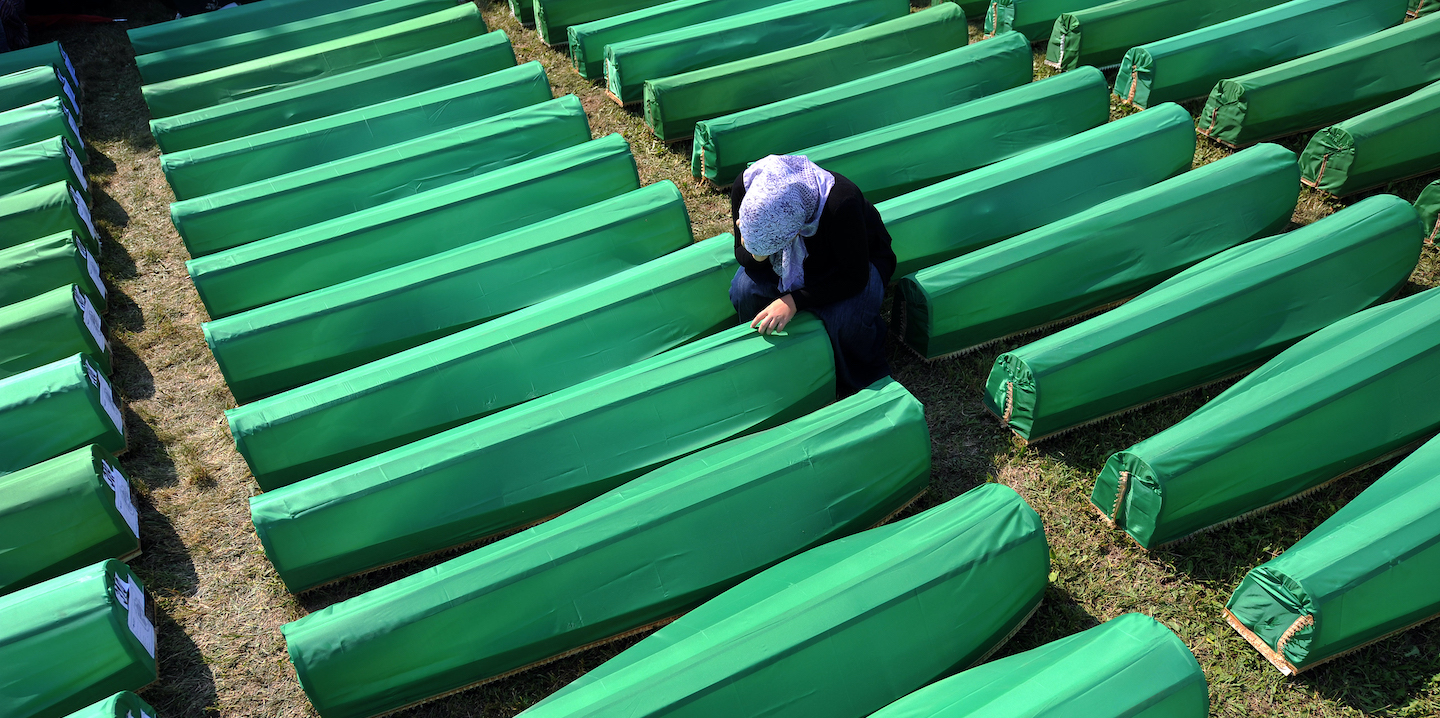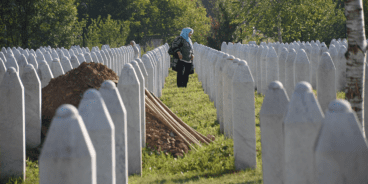

Statement on the 25th Anniversary of the Genocide in Srebrenica
Tomorrow, 11 July, marks 25 years since the start of the genocide in Srebrenica, where approximately 8,000 Bosniak men and boys were systematically murdered by the Bosnian Serb Army of Republika Srpska. More than 25,000 civilians were also forcibly displaced from the area as Serb forces carried out a campaign of ethnic cleansing.
The mass killing at Srebrenica was the worst atrocity on European soil since the Holocaust and took place during the devastating 1992-1995 war in Bosnia and Herzegovina. The UN Security Council had declared Srebrenica a “safe area” on 6 April 1993. Despite the presence of 400 UN peacekeepers, Bosnian Serb forces were allowed to overrun the town on 11 July 1995. Ethnic Bosniak men and boys were separated from their families and systematically executed over the following days. Twenty-five years later, victims continue to be identified as some mass graves are still being discovered and exhumed.
The genocide in Srebrenica was not a spontaneous act. As Yugoslavia started to politically disintegrate in the early 1990s, senior Serbian politicians, such as Slobodan Milošević and Radovan Karadžić, exploited extreme nationalist sentiment to gain power. They stigmatized the Bosniak Muslim minority and engaged in hate speech. Forces under their influence or direction planned and organized atrocities against non-Serb populations in areas that fell under their military control. Genocide and ethnic cleansing were the end result of this process of marginalization, persecution and war.
Twenty-five years later, we are once again witnessing the reemergence of revanchist nationalism, extreme xenophobia and hate speech across various parts of the world, including Europe. Ethnic cleansing, a term that was made notorious during the wars in the former Yugoslavia, still poses a threat to vulnerable populations in Myanmar, Democratic Republic of the Congo, and elsewhere.
Srebrenica should serve as a reminder that no society is immune from atrocities. While this year the international community celebrates the 15th anniversary of the UN’s adoption of the principle of the Responsibility to Protect – adopted partly in response to Srebrenica – we must intensify efforts to protect universal human rights and prevent atrocity crimes. Executive Director of the Global Centre for the Responsibility to Protect, Dr Simon Adams, said that: “Srebrenica is a reminder that indifference and inaction should never be an acceptable response to identity-based violence or ethnic cleansing. It remains essential to act on early warning, to overcome diplomatic inertia, and to reject genocide denial.”
Today we stand with the families of Srebrenica as they mourn their loved ones. Let the true legacy of Srebrenica be a determination to consistently uphold our collective responsibility to protect all those who face the threat of persecution and atrocities today.
Related Content

